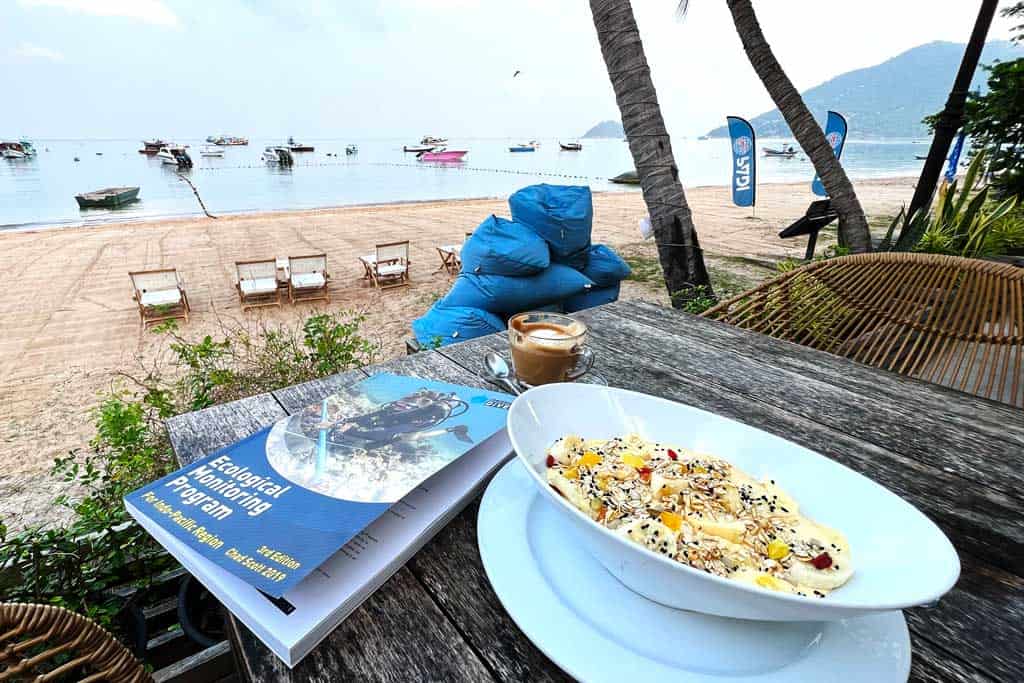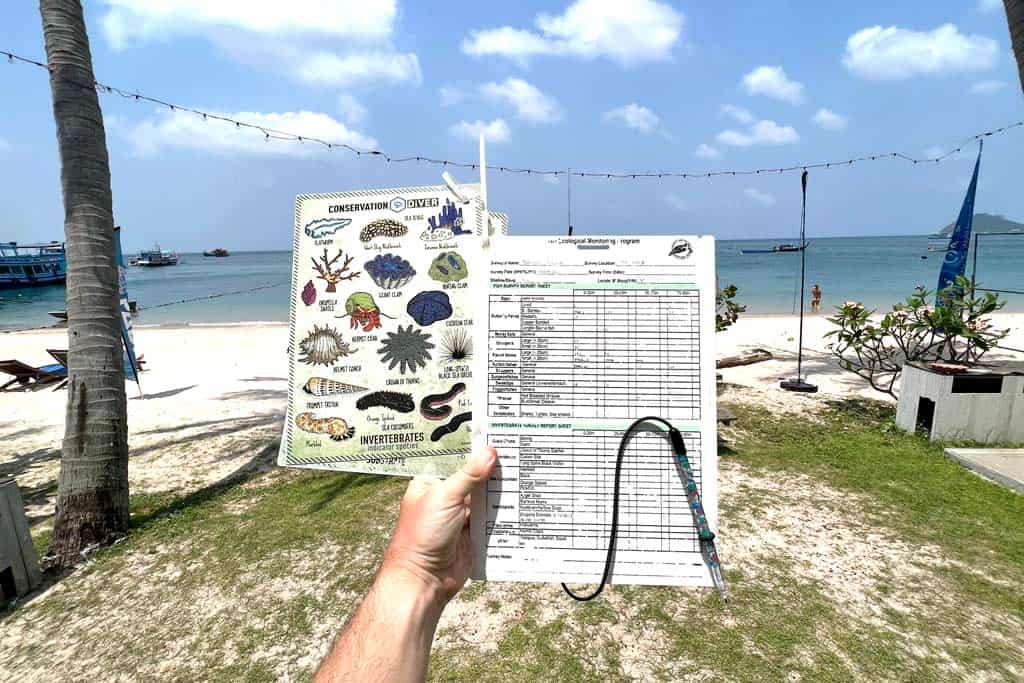Travel writer Jarryd Salem, one half the hugely popular Nomadasaurus travel blog team, recently revisited Koh Tao to find out more about the region’s marine conservation programs and was inspired to undertake the Ecological Monitoring Course run by local dive centre Black Turtle Dive.
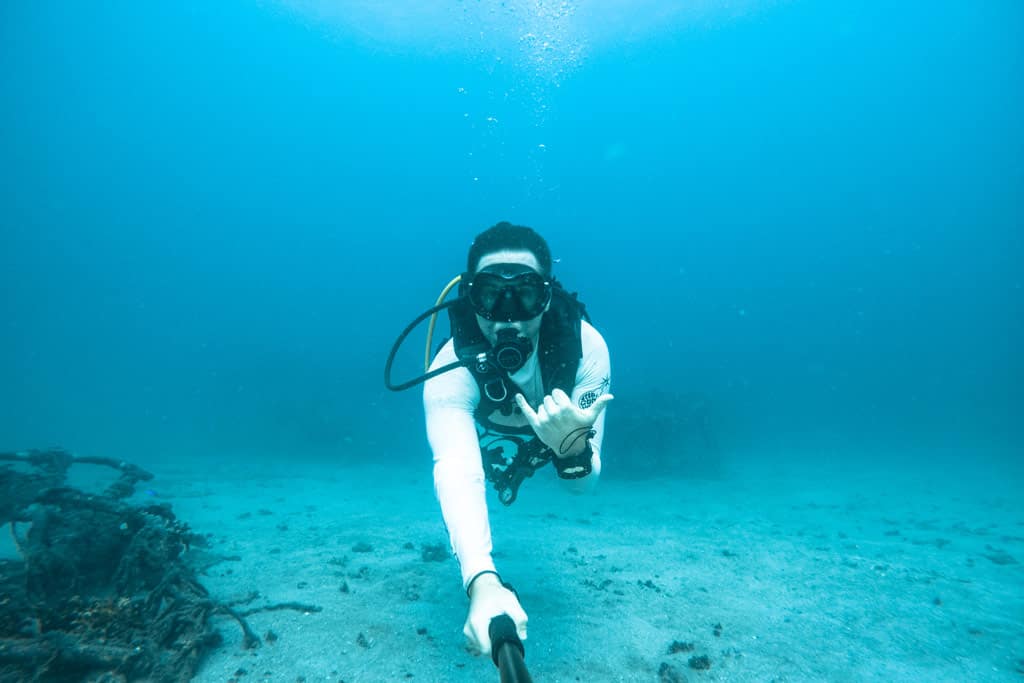
Jarryd shares his experience on the Nomadasauris blog – here’s a taster:
On my first visit to Koh Tao in 2014 I completed my PADI Rescue Course, along with my Wreck and Enriched Air (Nitrox) specialties to further advance my skills.
Now with around 100 dives under my belt, I returned in 2023 to dive as much as possible and document my experiences as I stepped into the world of conservation.
It’s no secret that I love Koh Tao, and it was a real pleasure to be returning to the place that almost became home and start to give back to the reefs.
Most of my time on this gorgeous island was dedicated to doing the Koh Tao Ecological Monitoring Program (EMP) course with Black Turtle Dive, and it proved to be one of my most transformative experiences since first getting certified as a scuba diver more than a decade ago.
Finally, I began to understand the importance of marine conservation with firsthand experience, and how I could make a meaningful difference.
In this blog post, I’ll share my experience with the EMP course in Koh Tao, what I learned, and how it changed my perspective as a diver forever.
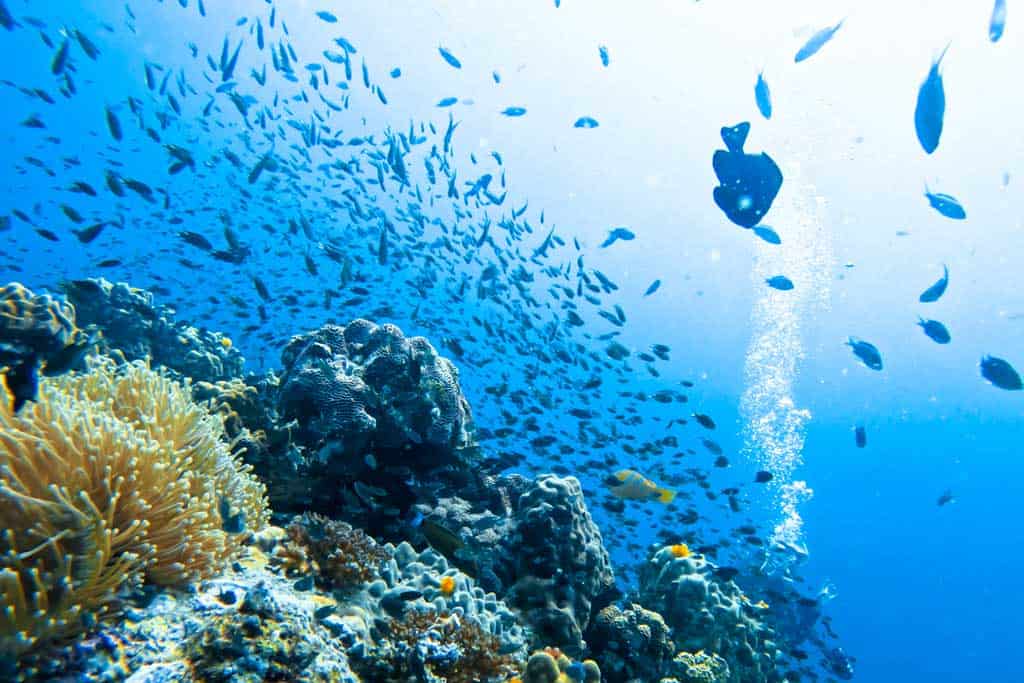
Table of Contents
- What is the Ecological Monitoring Program in Koh Tao?
- My Experience with the EMP Course at Black Turtle Dive
- My Thoughts on the EMP Course
- Doing the EMP Course into Your Koh Tao Visit
The Ecological Monitoring Program (EMP) is a specialised scuba diving course that focuses on the documentation and conservation of marine ecosystems.
Offered by the non-profit organisation Conservation Divers and conducted exclusively in Thailand by the experienced team at Black Turtle Dive in Koh Tao, the course teaches divers about the complex relationships within coral reef ecosystems, various marine species identification, and the techniques required for underwater surveys.
The Ecological Monitoring Program is traditionally a 4-day course and combines practical diving skills with in-depth knowledge of marine biology and ecological monitoring techniques.
The goal is to equip divers with the tools and understanding necessary to contribute effectively to ongoing conservation efforts, not just in Koh Tao but around the world.
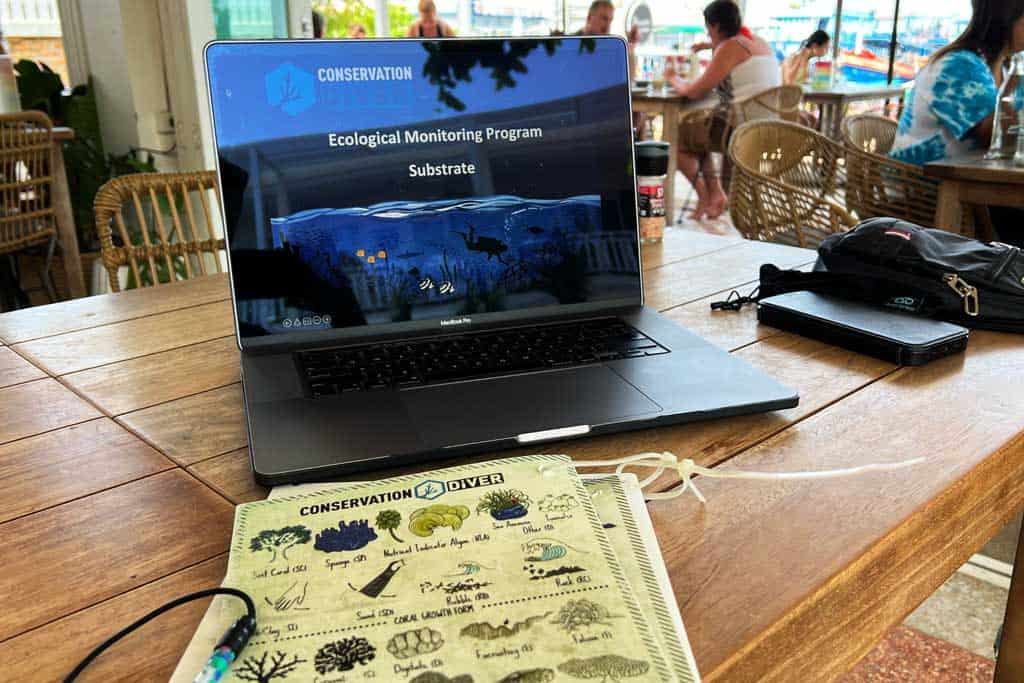
The data collected during these reef surveys, which are done weekly in Koh Tao, are then uploaded to a government-approved database so that scientists can track the health of the reef over time.
I’ve since discovered that these are the same types of surveys conducted by marine biologists all over the globe, including at my home on Magnetic Island in the Great Barrier Reef.
It’s a hugely beneficial and worthwhile course, and I was beyond thrilled to be learning these skills.
Read Jarryd’s full story here.
All images (c) Jarryd Salem

